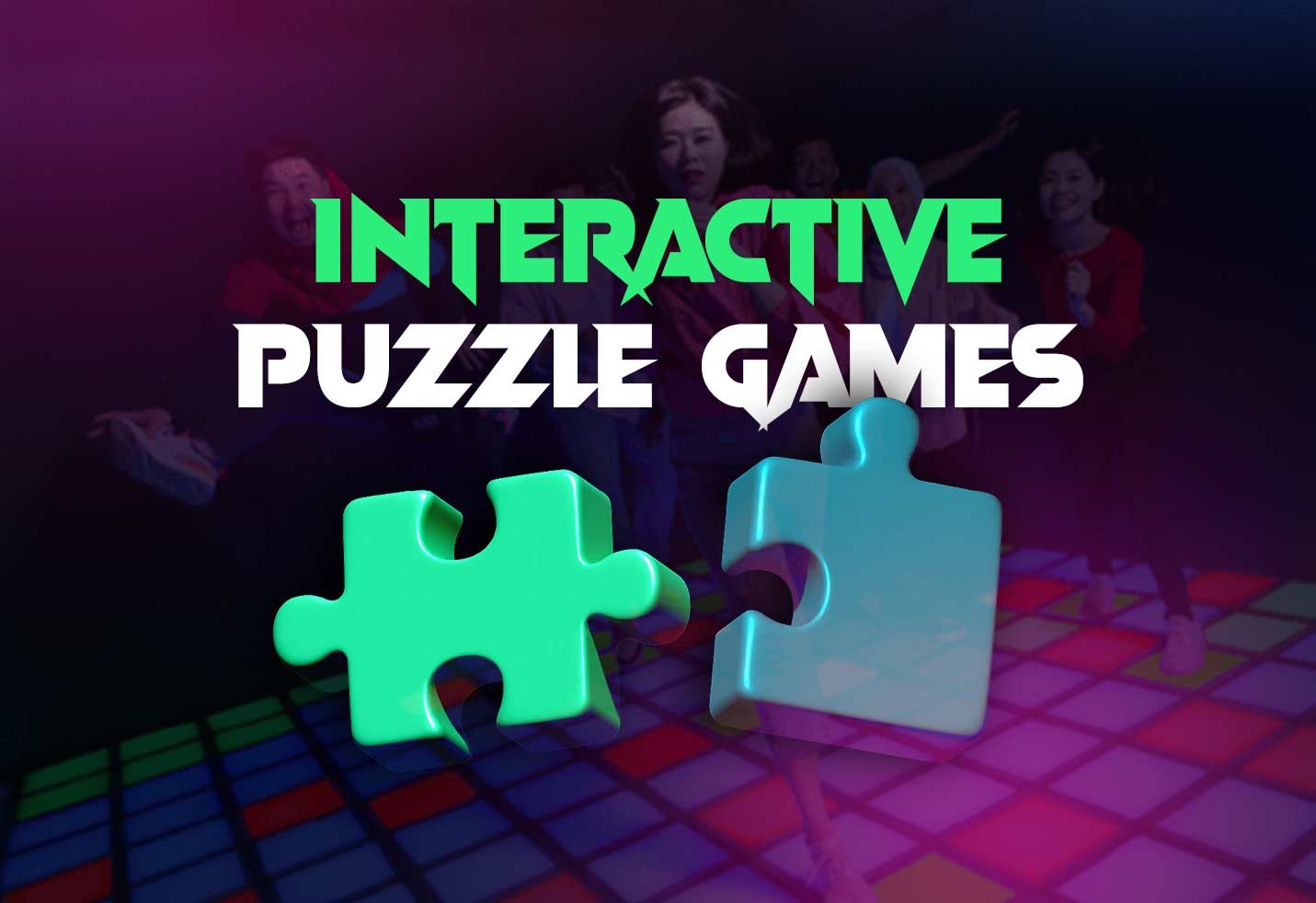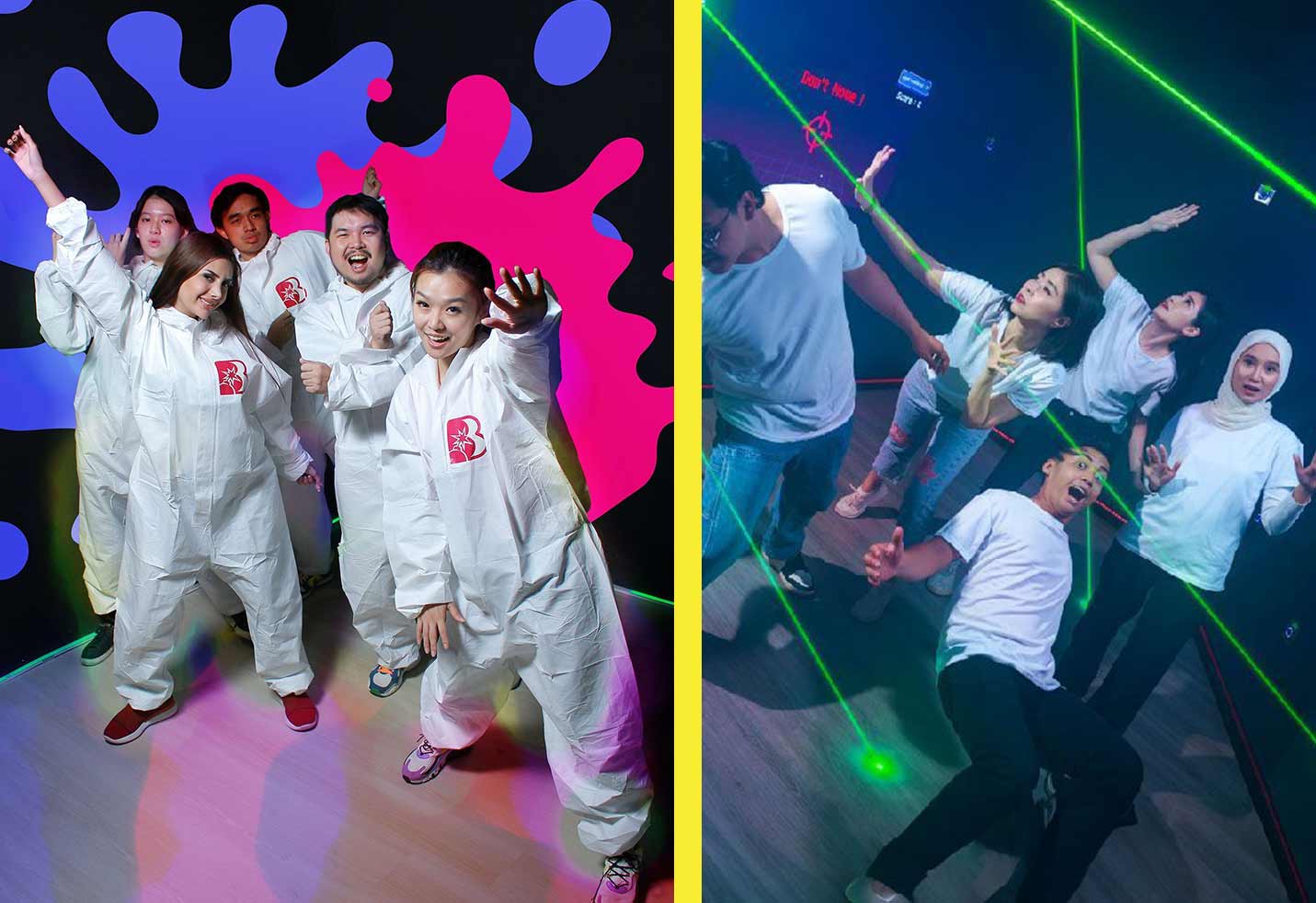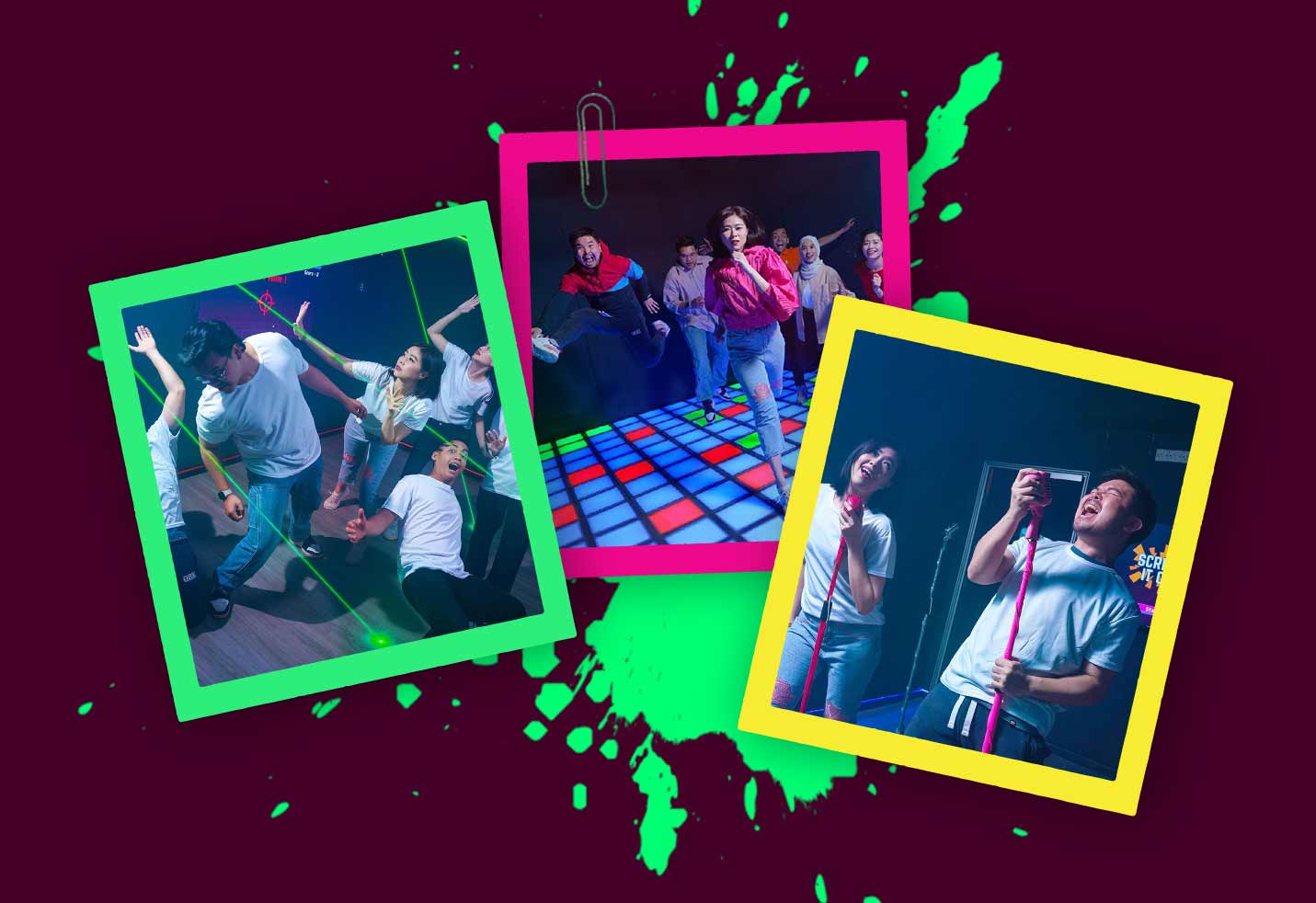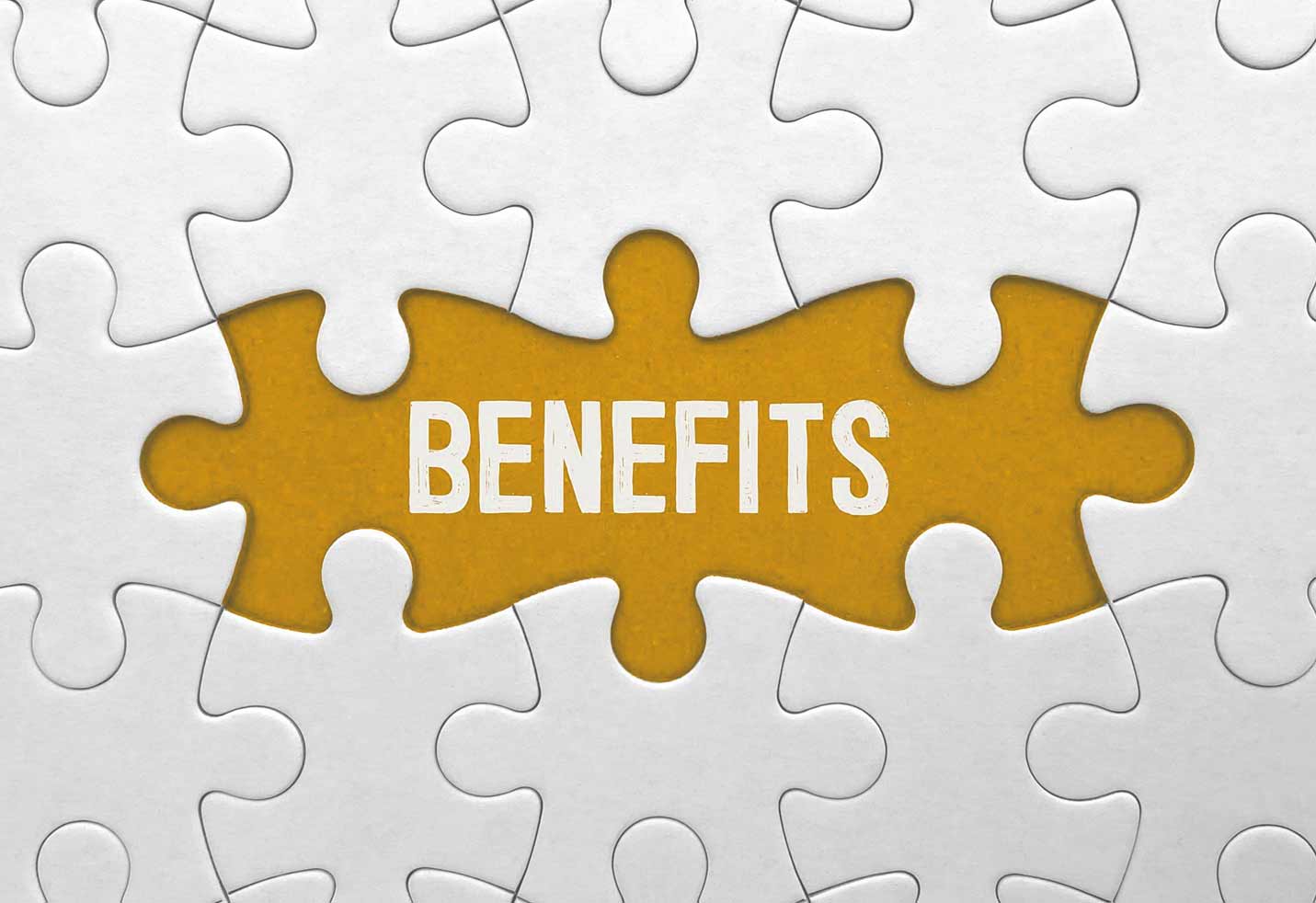
Games with interactive puzzles are excellent for encouraging teamwork. These activities push groups to work together to solve challenges. To construct teamwork and bonding, teams must collaborate in these activities while applying ingenuity and problem-solving techniques.
Interactive puzzle games can be of different types. You can take part in activities like escape rooms, riddle solving, and Rube Goldberg machines. Collaboration, communication, and fast thinking are needed for this.
These aren’t just puzzle games for entertainment. They aid in enhancing critical abilities, helping the team function well under pressure, and managing stress.
Want some cool options for group puzzle games? Let’s get to know about them!
What Is A Puzzle Team-Building Activity?

Puzzle activities like riddles are a good way to build teamwork. They push groups to solve challenges together and communicate with each other to reach a solution. Such activities can revive a team, especially if there is poor communication.
Team members connect better and also learn important problem-solving skills together as they find a solution to a common goal. Companies must conduct team-building events as they create bonding among the workers.
Whether it is a real-life or online event, this enables people in the company to interact more and also know each other more. It allows for better communication and certainly brings bonds. Also, workers are more effective in a team where members get along.
Interactive Puzzle Games: Real-Life Adventure Games

As we already stated the importance of having puzzle games for team building, now is the time to share some wonderful puzzle gaming options with you. Let’s look at what you can play to bring the team closer!
Escape Games
In these, players are, in effect, ‘trapped’ in the room and have to solve riddles to escape. The riddles are often impossible to solve on your own, and so you have to work together as a team.
There are many themes for escape rooms, which can be played online or in physical escape rooms like the Bombbattle.
These types of games test your ability to communicate, solve problems, and work together as a team. They are a fun way to test your team and build their relationships by cooperating and getting excited together.
Treasure Hunts
During a scavenger hunt, teams compete to find specific things or complete specific tasks in a set time frame. This fun team-building exercise can be played in person or online.
Teams work together to solve puzzles or complete tasks set before them. This exercise promotes collaboration and creative thinking. Watching teams decipher clues and function under pressure is entertaining.
Outdoor Mazes
It involves players finding a solution to physical puzzles known as outdoor mazes. Bombbattle offers a traversable network of corridors or tunnels where the goal is to find the exit, requiring cooperation and sharp navigational abilities.
Open and green areas like parks work well for the maze activity. Teams need to communicate well to successfully extricate themselves from tough spots that could lead to dead ends.
Thus, it’s an exercise in developing focus, cooperation, and originality in thinking. It’s a great way to get teams out of the office and find opportunities to work together in a fun outdoor environment.
Minefield
This is two minutes of blindfolded cooperation to find ‘safe’ areas in a minefield. Your team needs to race across the field to find these areas by relying on the countdown timer placed at the beginning of the safe area and the color-coded verbal cues that point the way.
If your team doesn’t think fast enough and treks into what it thinks is a safe zone only to find it’s a mine, you can lose points or be eliminated from the game. For digital teams, this can be done with a physical blindfold set or virtually.
Continue Talking Until Someone Explodes
This is another game that is very good for strengthening communication, a cooperative bomb-defusing game. One player can see a virtual ‘bomb’ that needs to be defused. Although they cannot see the device, the rest of the team has the defusing handbook.
They need to communicate very specifically and without ambiguity to guide the player through the procedure. For what it’s worth, the team type that would benefit most from Keep Talking is the one that feels nervous as soon as the clock starts and needs to hit the reset button within 20 minutes.
Rebus Or Bust
Rebus or Bust is an excellent team-building game for riddle lovers. A puzzle named “rebus” consists of a picture, symbol, or letters that are used to render a word or a sentence. Members of a group can compete to solve this type of riddle, which involves brainstorming and innovative problem-solving.
Hence, you can arrange to have smaller teams compete against each other or gather people for a more engaging experience.
Make This Up
This is an excellent team-building activity that encourages teamwork, creativity, and thinking on your feet. Teams have to work together to create the funniest skits so that the audience will choose them.
Before each round, participants will provide a starting line for a story. Two teams will create a story based on that starting line, and the audience will choose which skit is funnier.
As long as the audience is having fun and the teams are focused on working together, your team-building game is successful!
The Barter Puzzle
Jigsaw puzzles are typical group activities. But what if some of your puzzle pieces belong to other puzzles? In The Barter Puzzle, teams must finish assembling jigsaw puzzles, but all the puzzles were jumbled up from the outset.
Each puzzle is different. Some puzzle pieces are mixed up with other puzzles. To finish these riddles, teams must trade components. Therefore, it requires cooperation, planning, and bargaining.
You need to talk across tables and persuade people to swap pieces. Completing the puzzle becomes a fun way to develop your ability to bargain and work as a team.
Jigsaw Puzzles
Human beings are very competent at remembering patterns, as any Magic Eye enthusiast will tell you. A jigsaw puzzle is just that: a set of interconnected, individual parts that make up a whole picture, whether it’s digital or made of actual pieces.
Jigsaw puzzle completion is truly a test of team creativity, team focus, and team observation. A timer can also be used to see who can finish their problem first, which makes the experience more adrenaline-inducing.
Jigsaw puzzles are a great team-building exercise, and here is why: they are a fantastic problem-solving technique, and they really aid collaborations.
Math Mazes
Team members can use their mathematical and reasoning skills to participate in solving some math mazes. Set your team a timeframe to solve a series of math problems most suitable for their ability level.
Thus, teams can split the work or collaborate towards a solution. Such challenges will enhance the team’s critical thinking, especially in the pursuit of a collective objective.
Rube Goldberg Off
Rube Goldberg Off asks teams to create the most elaborate Rube Goldberg machine, an over-designed device to perform a simple task. Team members let loose with their creativity to create a Rube Goldberg contraption that is the most elaborate of all.
Members must think and collaborate, enhancing individual creativity, thinking and collaboration. A fun and inventive way to harness your team’s creativity is to play Rube Goldberg Off.
Geographical Puzzles
This type of activity challenges your team’s spatial abilities by seeing how fast and accurately they can place each country in its correct place on a world map.
Clear some space! Either provide teams with blank maps to fill in or list the names of the countries for them to write down. It’s easy to set up, but it takes teamwork to succeed.
Group collaboration is fun for almost any team-building exercise, and games like this one inspire participants to share their knowledge and work together to finish the map.
Benefits Of Using Puzzles As Team Strategy Games

Puzzle activities to play with the team enhance the bonding between members. Also, it gives the taste of collaboration. Nonetheless, there are more beneficial sides to this:
Establishing Trust
Trust is summed up by the way collective confidence grows in a team solving a puzzle. Individuals working together must call on each other’s strengths and ideas to achieve tasks.
Reliance like this encourages trust. A teammate you can trust is more welcoming of open communication about expectations and feelings. If you trust others abilities, then it’s easier to share and take risks, knowing that the group can achieve success together.
Embracing Creativity
One reason is that people are forced to be more creative than when they are solving problems together. Solving puzzles often requires creative thinking and lateral thinking.
Once teams have learned to be more creative, they can use that creativity to challenge better ways of doing things, work more efficiently, and develop new processes.
Promoting Critical Thought
Delivering on objectives, especially when opposing views or short timelines exist, requires teams to exercise critical thinking and develop workable solutions.
Therefore, puzzles push teams to persevere with this process: identifying the issue, then analyzing solutions, and ultimately reaching a decision on the score. Team members develop their critical-thinking powers, which improves their ability to contribute to efforts.
Improving Interaction
Puzzles require good communication to resolve. If all team members do not communicate, share, and use the information and knowledge, they will not know what their partners do with their pieces of the puzzle.
If all partners can communicate, share, and integrate the information and knowledge, they will start becoming better communicators. Good communication through interaction will guarantee that all players understand what the puzzle is about, develop good problem-solving skills, and become active participants in the task.
Strengthening Teamwork
Puzzles enhance the ability to work in teams because while working together, they need to figure out the solution to continue. Each contributor is important, and teamwork is necessary for the group to succeed.
Everyone must give input into the situation, and everyone is encouraged to give their idea in this mood. If people are working together on puzzles, they are more likely to adopt an attitude of cooperation within a team setting.
Raising Enthusiasm
Solving a puzzle together is a major contribution to team-building spirit. There is nothing like that feeling in the pit of your stomach when you solve a difficult puzzle.
When people work together to overcome challenges and obstacles, the result is a happy and cooperative team. Recognition of these small accomplishments raises satisfaction and team spirit.
Bottom Line
Interactive puzzle games in a group setting can increase collaboration, communication, and trust among team members. Starting from building better bonding, it also gives team members a sort of entertainment.
Therefore, if you want your team to enjoy this to the fullest, contact Bombbattle to prepare the thrill for you!